21 Interesting Animal Facts
Nathan Johnson
Published
10/23/2020
in
Funny
Animals are so freakin' cool.
The animal kingdom has got all sorts of interesting specimens who are each capable of doing some pretty uniquely incredible things. There are rats than can be trained to sniff out landmines, dogs who provide emotional support to baby cheetahs, and even pigs with wooly coats like a sheep!
The animal kingdom has got all sorts of interesting specimens who are each capable of doing some pretty uniquely incredible things. There are rats than can be trained to sniff out landmines, dogs who provide emotional support to baby cheetahs, and even pigs with wooly coats like a sheep!
- List View
- Player View
- Grid View
Advertisement
-
1.
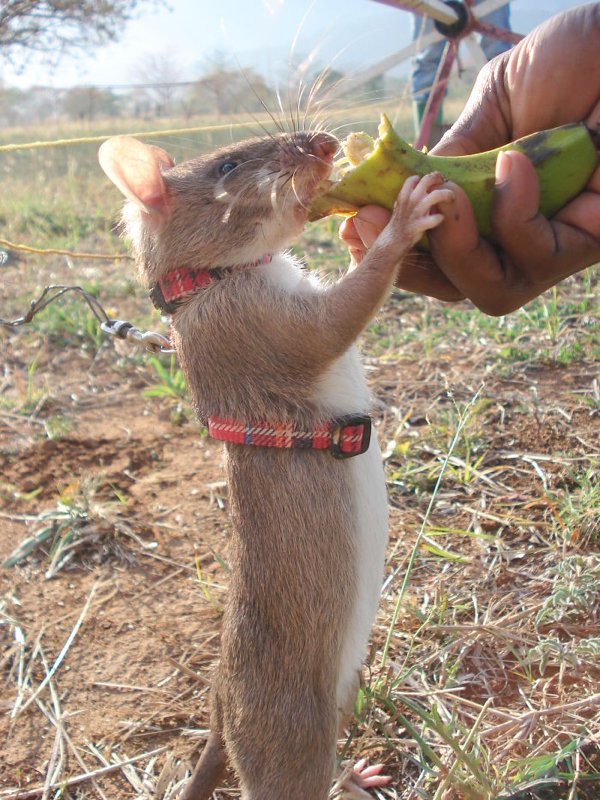 Trained African Giant Pouched Rats have found thousands of unexploded landmines and bombs. Researchers have also trained these rats to detect tuberculosis. And most recently they are training them to sniff out poached wildlife trophies being exported out of African ports.
Trained African Giant Pouched Rats have found thousands of unexploded landmines and bombs. Researchers have also trained these rats to detect tuberculosis. And most recently they are training them to sniff out poached wildlife trophies being exported out of African ports. -
2.
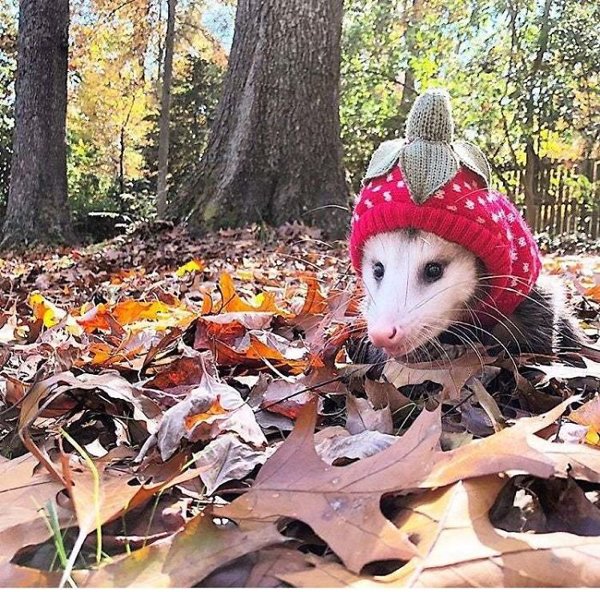 The Opossum is North America’s only marsupial, they can eat 5000 ticks a year and are almost immune to rabies. Their body temperature is too low for the virus to survive.
The Opossum is North America’s only marsupial, they can eat 5000 ticks a year and are almost immune to rabies. Their body temperature is too low for the virus to survive. -
3.
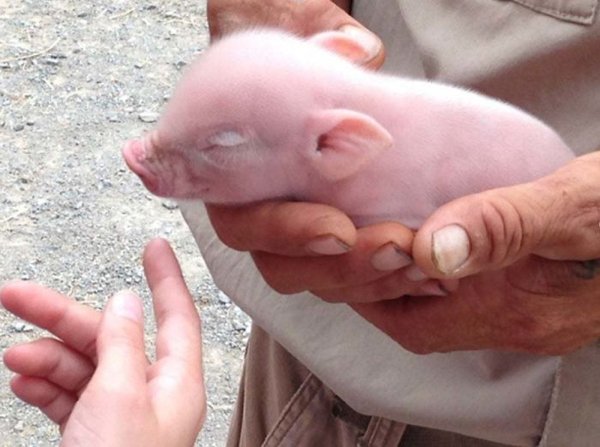 Pigs have episodic memory. It is likely that they can replay and feel past experiences in their heads.
Pigs have episodic memory. It is likely that they can replay and feel past experiences in their heads. -
4.
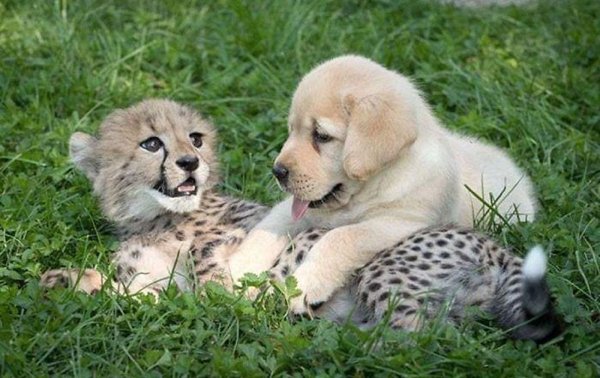 Cheetahs Are So Shy That Zoos Give Them Their Own Emotional “Support Dogs”
Cheetahs Are So Shy That Zoos Give Them Their Own Emotional “Support Dogs” -
5.
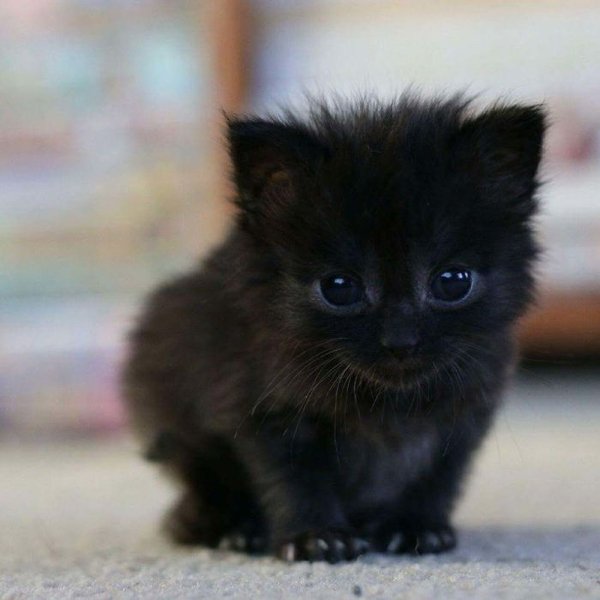 In most western cultures, black cats are considered a bad omen. But in Scottish lore, the arrival of a strange black cat signifies prosperity.
In most western cultures, black cats are considered a bad omen. But in Scottish lore, the arrival of a strange black cat signifies prosperity. -
6.
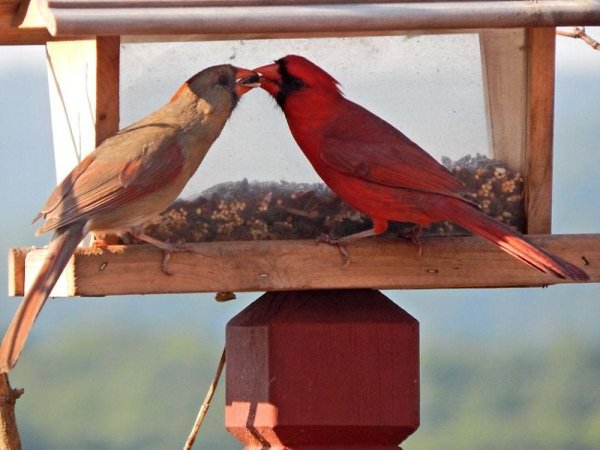 The northern cardinal is probably the most ‘romantic’ bird species: they mate for life, travel together, sing before nesting, and during courtship, feed seed beak-to-beak.
The northern cardinal is probably the most ‘romantic’ bird species: they mate for life, travel together, sing before nesting, and during courtship, feed seed beak-to-beak. -
7.
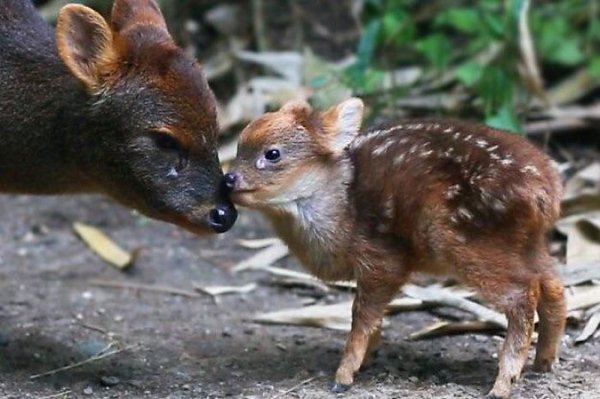 The Pudú deer is the smallest species of deer standing at 15 inches tall on average.
The Pudú deer is the smallest species of deer standing at 15 inches tall on average. -
8.
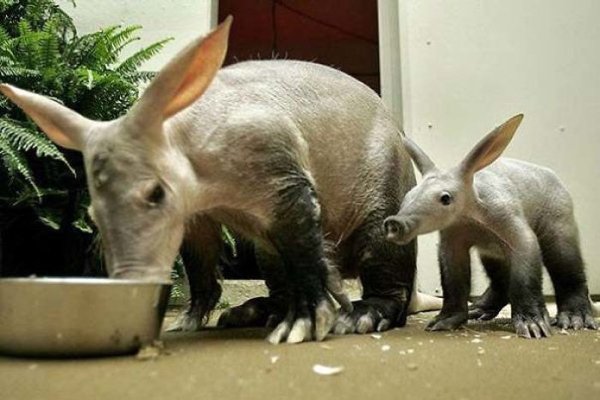 The aardvark, alphabetically the first animal, plays an important role in preventing wildlife deaths from fire. They dig large underground burrows that wildlife can hide in during fires.
The aardvark, alphabetically the first animal, plays an important role in preventing wildlife deaths from fire. They dig large underground burrows that wildlife can hide in during fires. -
9.
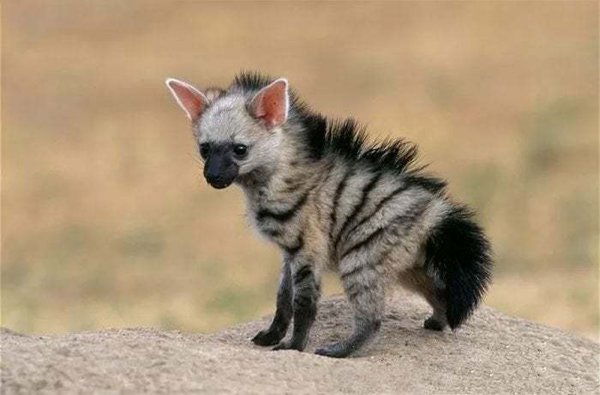 Aardwolves are shy and nocturnal, sleeping in underground burrows by day. They have often been mistaken for solitary animals. In fact, they live as monogamous pairs with their young.
Aardwolves are shy and nocturnal, sleeping in underground burrows by day. They have often been mistaken for solitary animals. In fact, they live as monogamous pairs with their young. -
10.
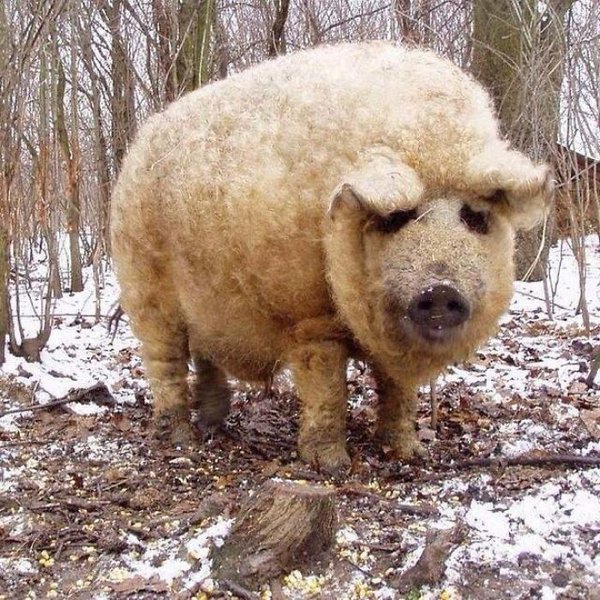 The Mangalica is the only pig species covered in a long wool coat, similar to a sheep’s.
The Mangalica is the only pig species covered in a long wool coat, similar to a sheep’s. -
11.
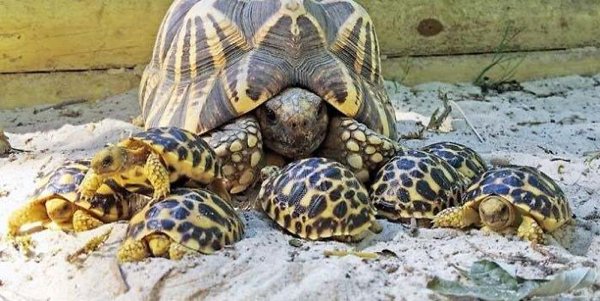 The Burmese star tortoise is one of the few animals that have comeback from being called functionally extinct.
The Burmese star tortoise is one of the few animals that have comeback from being called functionally extinct. -
12.
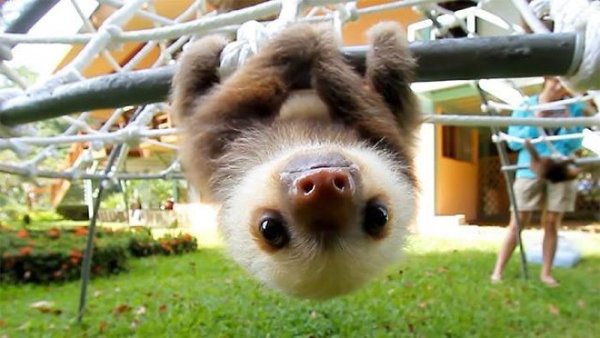 A sloth’s claws work the opposite way that human hand does. The default position is a tight strong grip, and sloths must exert effort to open them up. This is why sloths don’t fall out of trees when they’re asleep.
A sloth’s claws work the opposite way that human hand does. The default position is a tight strong grip, and sloths must exert effort to open them up. This is why sloths don’t fall out of trees when they’re asleep. -
13.
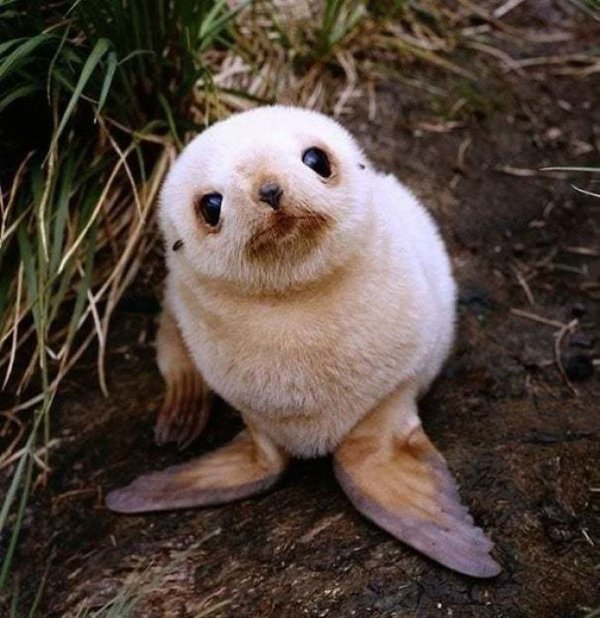 The milk of pinnipeds consists of up to 60% fat, allowing the young to grow fairly quickly. Pups can gain over 2.2 kg (4.9 lb) per day while nursing.
The milk of pinnipeds consists of up to 60% fat, allowing the young to grow fairly quickly. Pups can gain over 2.2 kg (4.9 lb) per day while nursing. -
14.
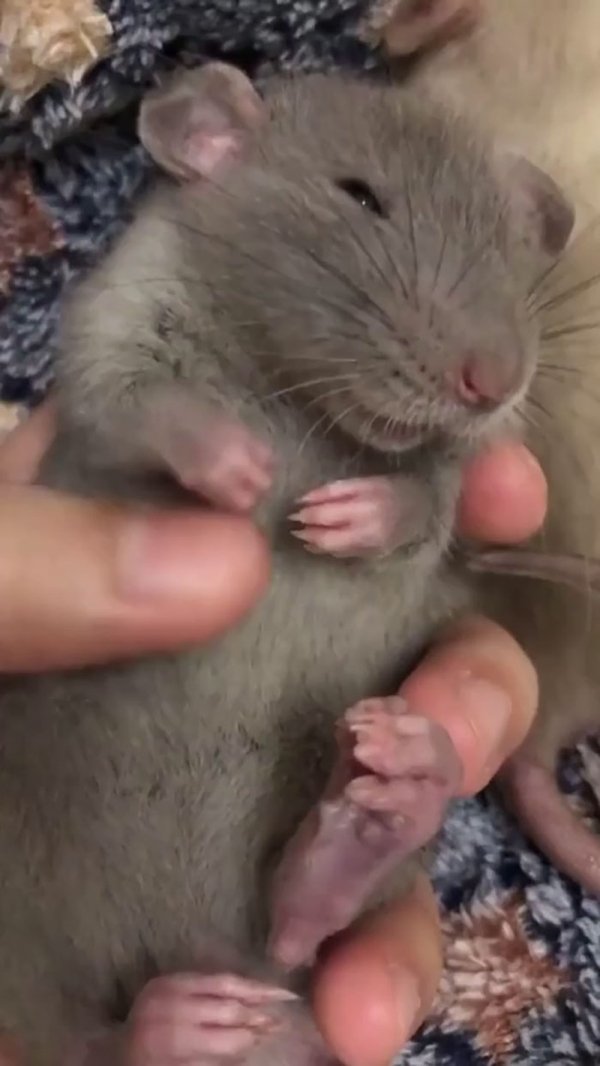 Scientists know that rats like to have their bellies tickled, so they used that as basis for testing happiness in rats. They found out that the ears of rats undergoing tickling became droopier and pinker – subtle signs of being relaxed and happy.
Scientists know that rats like to have their bellies tickled, so they used that as basis for testing happiness in rats. They found out that the ears of rats undergoing tickling became droopier and pinker – subtle signs of being relaxed and happy. -
15.
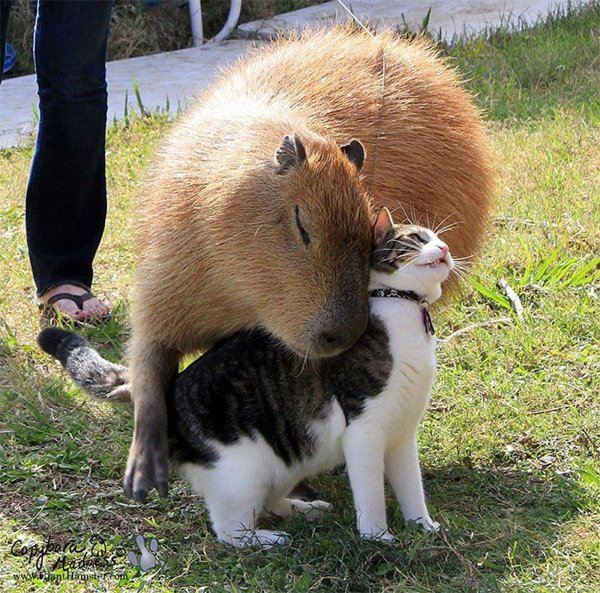 Capybara’s are social animals, who get along with a large variety of other animals, including chickens, ducks, dogs, cats, llamas, rabbits and turtles.
Capybara’s are social animals, who get along with a large variety of other animals, including chickens, ducks, dogs, cats, llamas, rabbits and turtles. -
16.
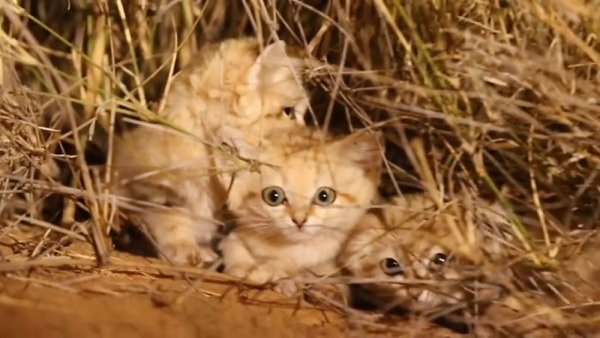 Sand Cats specialize in surviving in the desert. They are not good climbers or jumpers, but they are excellent diggers. They use their digging ability to dig shallow burrows to escape the heat of the desert during the day.
Sand Cats specialize in surviving in the desert. They are not good climbers or jumpers, but they are excellent diggers. They use their digging ability to dig shallow burrows to escape the heat of the desert during the day. -
17.
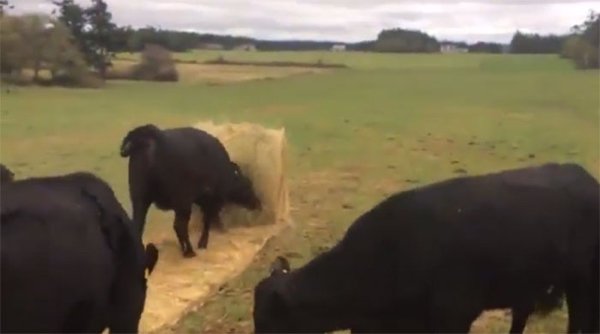 Cows have “eureka” moments, and take pleasure in their own learning achievements.
Cows have “eureka” moments, and take pleasure in their own learning achievements. -
18.
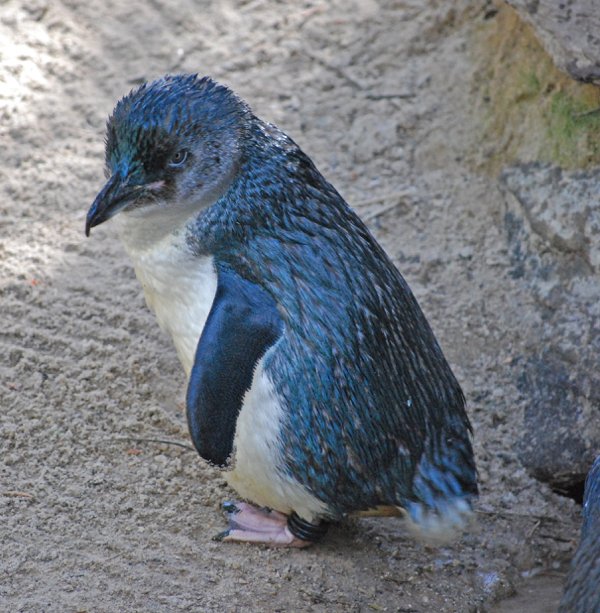 Blue Penguins are the smallest type of penguin. Adults reach only 12-13in tall. Owing to their small size and bright color they are often called Fairy Penguins.
Blue Penguins are the smallest type of penguin. Adults reach only 12-13in tall. Owing to their small size and bright color they are often called Fairy Penguins. -
19.
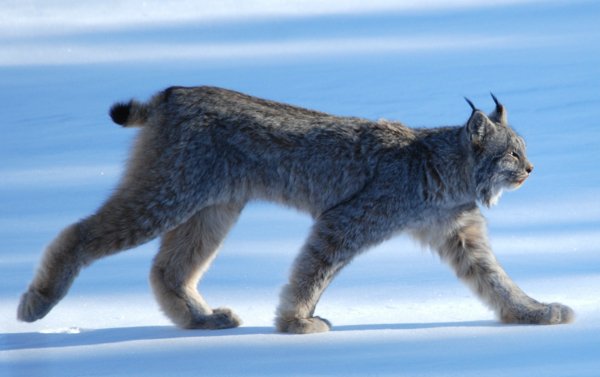 Lynx have evolved enormous paws to distribute weight better in snow, acting like natural snowshoes.
Lynx have evolved enormous paws to distribute weight better in snow, acting like natural snowshoes. -
20.
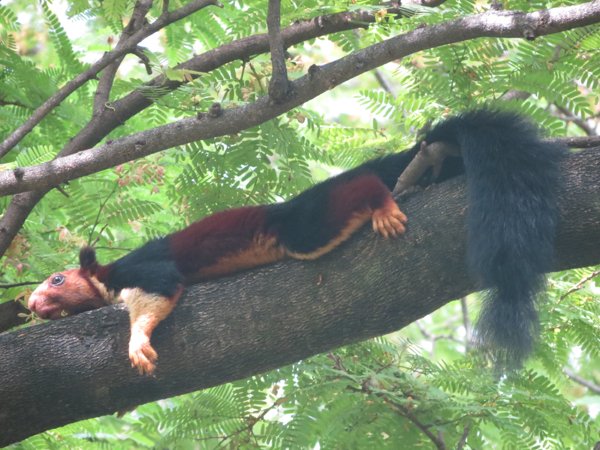 When in danger, the Malabar giant squirrel often freezes or flattens itself against the tree trunk, instead of fleeing.
When in danger, the Malabar giant squirrel often freezes or flattens itself against the tree trunk, instead of fleeing. -
21.
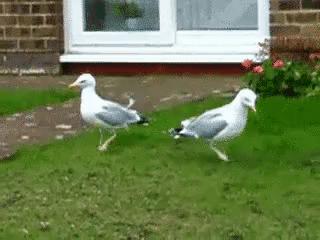 Seagulls stomping on grass is called the rain dance. This mimics rain by vibration and brings earthworms and other bugs to surface.
Seagulls stomping on grass is called the rain dance. This mimics rain by vibration and brings earthworms and other bugs to surface.
- NEXT GALLERY
-

- 62 Choice Random Pics Selected For You
Trained African Giant Pouched Rats have found thousands of unexploded landmines and bombs. Researchers have also trained these rats to detect tuberculosis. And most recently they are training them to sniff out poached wildlife trophies being exported out of African ports.
21/21
1/21


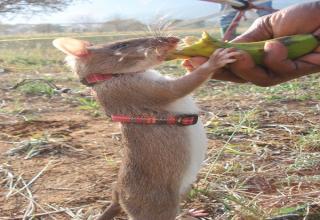





1 Comments